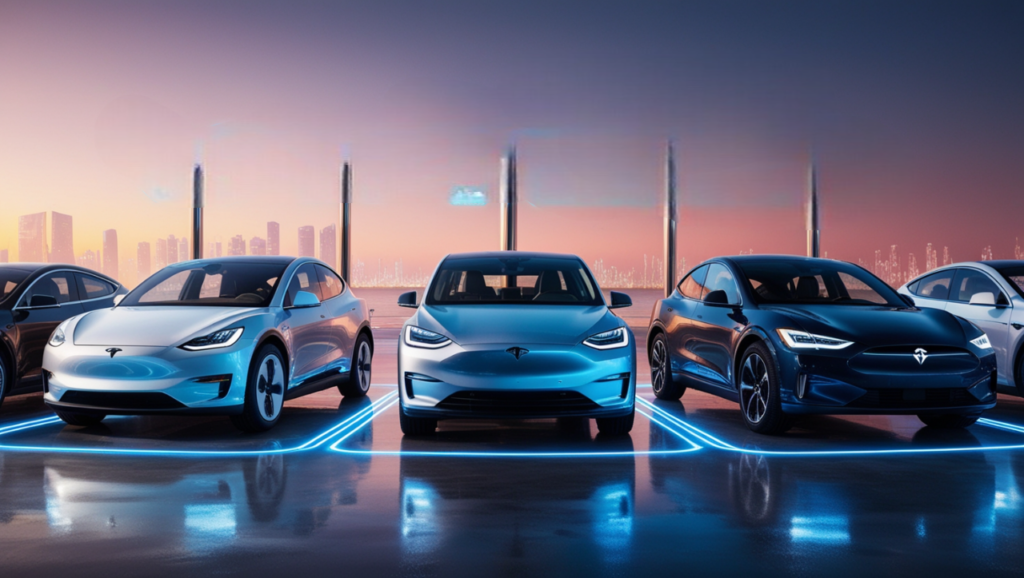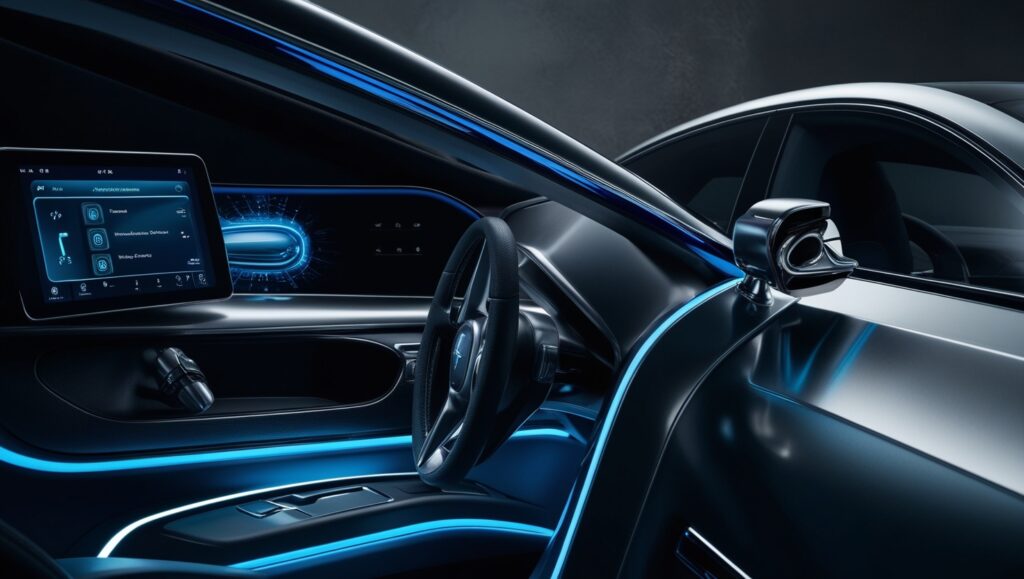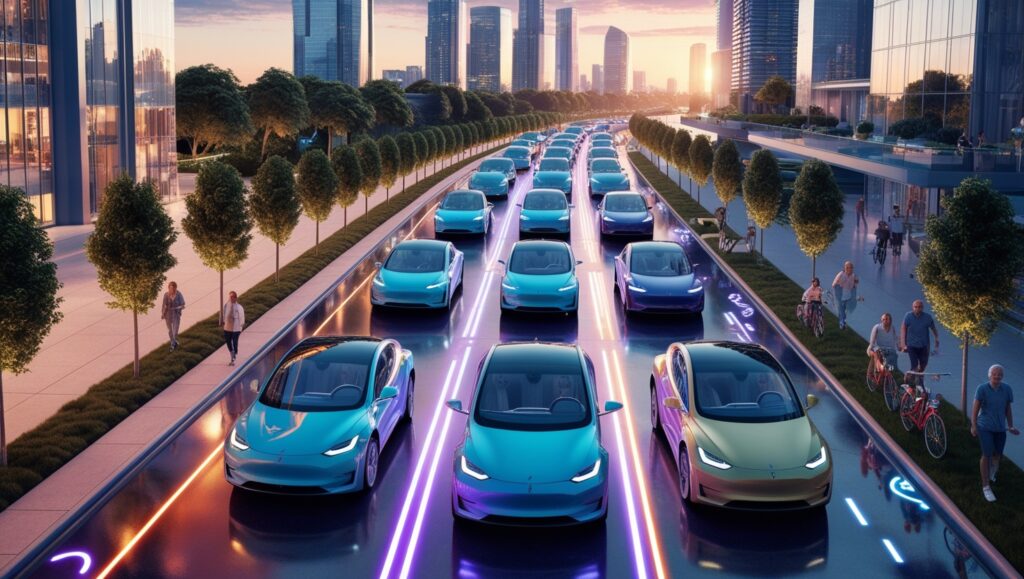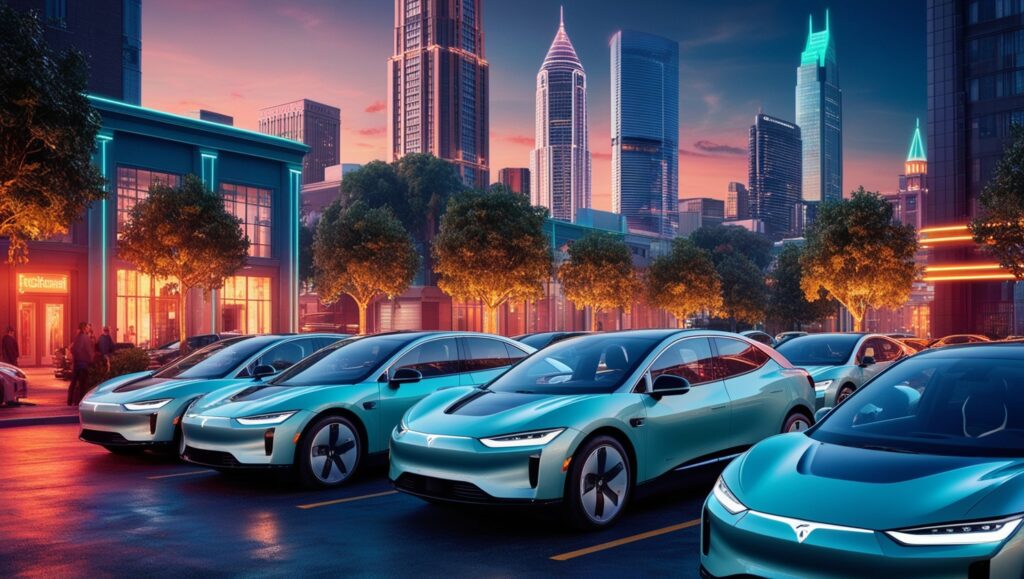The Best Electric Vehicles market in India is still in its nascent stage, but it has tremendous potential for growth in the coming years. India has set an ambitious target of having only electric vehicles (EVs) on its roads by 2030, which has significantly boosted the EV market in the country. In recent years, the Indian government has introduced several incentives and schemes to promote the use of electric cars, including tax exemptions, subsidies, and reduced GST rates.
The EV market in India is dominated by two-wheelers and three-wheelers, with companies such as Hero Electric, Ather Energy, and Bajaj Auto leading the way. However, the demand for electric cars is also growing steadily, with major car manufacturers like Tata Motors, Mahindra & Mahindra, and MG Motor launching their electric vehicles in the Indian market.
The high cost of top electric cars remains a significant barrier to widespread adoption in India. Still, the government’s efforts to promote domestic manufacturing of EVs and improve charging infrastructure are expected to bring down prices in the future. Furthermore, the increasing awareness among consumers about the environmental benefits of electric vehicles and the rising fuel cost are also likely to drive the demand for EVs in India.
Overall, the electric car market in India is expected to grow significantly in the coming years, driven by government initiatives, technological advancements, and changing consumer preferences.
Review of the Top 5 Electric Cars in 2023 Initial Price, Top Speed & Range

Based on the information available until my cut-off date, here is a review of the top 5 electric cars in India:
Tata Nexon EV:
The Tata Nexon EV is currently one of the most popular electric cars in India. It has an initial price of around INR 15 lakhs and can travel up to 312 km on a single charge. It has a top speed of 120 km/h and can accelerate from 0 to 100 km/h in 9.9 seconds.
Pros:
- Affordable initial price compared to other electric SUVs in India
- A decent range of 312 km on a single charge
- Fast charging capability: can charge up to 80% in 60 minutes
- Impressive safety features, including electronic stability control, hill ascent and descent control, and six airbags
Cons:
- Limited top speed of 120 km/h
- Slower acceleration than some of its competitors
- Limited availability of charging stations in some regions
MG ZS EV:
The MG ZS EV is another popular electric car in India, with an initial price of around INR 21 lakhs. It has a range of up to 419 km on a single charge and a top speed of 140 km/h. It can accelerate from 0 to 100 km/h in 8.5 seconds.
Pros:
- Good range of up to 419 km on a single charge
- Comfortable and spacious interiors
- Fast charging capability: can charge up to 80% in 50 minutes
- It comes with a 5-year warranty
Cons:
- Higher initial price compared to some of its competitors
- Limited top speed of 140 km/h
- Limited availability of charging stations in some regions
Hyundai Kona Electric:
The Hyundai Kona Electric has an initial price of around INR 25 lakhs and can travel up to 452 km on a single charge. It has a top speed of 167 km/h and can accelerate from 0 to 100 km/h in 9.7 seconds.
Pros:
- Impressive range of up to 452 km on a single charge
- Fast charging capability: can charge up to 80% in 57 minutes
- Spacious and feature-packed interiors
- It comes with a 3-year unlimited-kilometer warranty and an 8-year/1,60,000 km battery warranty.
Cons:
- Higher initial price compared to some of its competitors
- Limited availability of charging stations in some regions
- Limited headroom and legroom for rear passengers
Mahindra eKUV100:
The Mahindra eKUV100 is a more affordable electric car, with an initial price of around INR 8.25 lakhs. It has a range of up to 150 km on a single charge and a top speed of 80 km/h. It can accelerate from 0 to 60 km/h in 9 seconds.
Pros:
- Affordable initial price compared to other electric cars in India
- Easy to maneuver in city traffic due to its compact size
- It comes with a 3-year warranty on the battery and vehicle
Cons:
- Limited range of 150 km on a single charge
- Little top speed of 80 km/h
- Limited availability of charging stations in some regions
- Limited passenger and luggage space
Renault Kwid EV:
The Renault Kwid EV is expected to be launched in India soon, with an initial price of around INR 10 lakhs. It is expected to have a range of up to 350 km on a single charge and a top speed of 105 km/h.
Pros:
- Expected to have an affordable initial price
- Expected to have a decent range of 350 km on a single charge
- Compact and easy to maneuver in city traffic
Cons:
- Limited information is available now as it is yet to be launched in India.
- Limited availability of charging stations in some regions
- Limited passenger and luggage space
What Features Make an Electric Cars Stand Out from its Competitors?

Several features can make an electric car stand out from its competitors. Here are some of the key features:
Range: The range of an electric car is one of the most essential features that can make it stand out. A vehicle with a more extended coverage can be more convenient and practical for everyday use. It also reduces the need for frequent charging and provides more freedom to travel longer distances. When considering the purchase of an electric vehicle, understanding the top electric cars price can help you make an informed decision based on both range and affordability.
Charging speed: The charging speed of an electric car is another important factor that can make it stand out. A vehicle that can charge quickly can be more convenient for everyday use and reduce the time spent waiting for the car to set.
Performance: Electric cars can offer impressive acceleration and torque, making them stand out. The instant torque provided by electric motors can provide a smooth and powerful driving experience.
Safety features: Electric cars can have advanced safety features such as automatic emergency braking, adaptive cruise control, and lane departure warning systems. These features can make the vehicle safer and reduce the risk of accidents. Staying updated with the best electric vehicles news can keep you informed about the latest safety innovations and technological advancements in electric cars. Additionally, exploring offerings from top electric cars brands can help you find a vehicle that prioritizes safety alongside performance and efficiency.
Technology: Electric cars can come with advanced technology features such as touchscreens, wireless charging, and voice-activated controls. These features can enhance the driving experience and make the vehicle more convenient and enjoyable.
Design: Electric cars can have a unique and modern design that can make them stand out from their competitors. Some electric cars have a sleek and futuristic design, while others have a more traditional design.
Environmental impact: Electric cars are more environmentally friendly than traditional gasoline cars, which can be a significant selling point for some buyers. A more eco-friendly vehicle can make it stand out from its competitors and appeal to environmentally conscious buyers.
It is important to note that not all electric cars have all of these features, and the importance of each component may vary depending on the needs and preferences of individual buyers.
Conclusion

Ultimately, the best electric car for Indian drivers will depend on their individual needs and preferences. When choosing an electric vehicle, drivers should consider factors such as range, charging speed, performance, safety features, technology, design, and environmental impact. Electric Vehicle Today cars blog and Best Electric Vehicles News can provide valuable information to help drivers make informed decisions.
